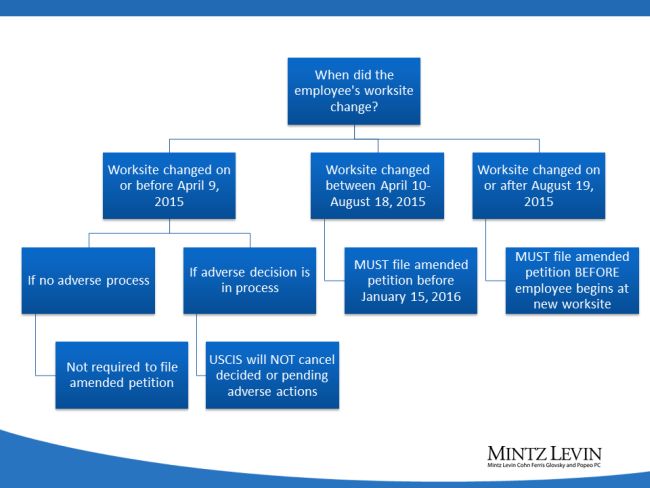U.S. Citizenship and Immigration Services (USCIS) released final guidance on a recent Administrative Appeals Office (AAO) decision requiring amended or new H-1B petitions for workers who change job sites. These requirements continue to only affect H-1B workers who move to a site outside the "area of intended employment" for which the original petition on their behalf was filed. "Area of intended employment" is the area within normal commuting distance of the worksite where the H-1B is employed.
Guidance on what employers are required to do depends on the date of the employee's move, which are drawn from the publication dates of the Simeio case and issuance of USCIS policy memos. All changes described below are for changes in the place of employment that require certification of a new Labor Conditions Application (LCA). These actions can be split into three categories by date:

Though employers are not required to file an amended or new petition if the employee's worksite changed on or before April 9, 2015, they may choose to do so to encourage non-interference by USCIS. All changes in place of employment that occurred after April 9, 2015 and require certification of a new LCA MUST file an amended or new petition.
The content of this article is intended to provide a general guide to the subject matter. Specialist advice should be sought about your specific circumstances.


